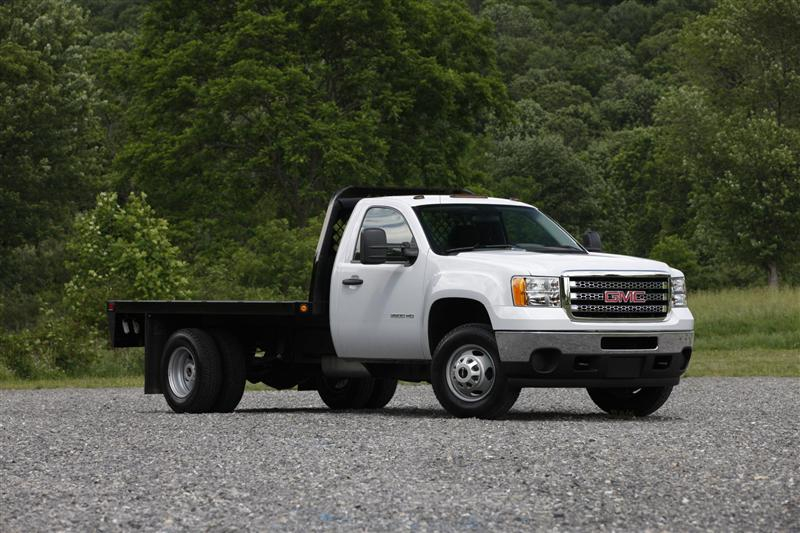Comparing Pickup Trucks and Flatbed Trucks for Business Use
When picking out a vehicle for your business use is concerned, knowing the difference between pickup trucks and flatbed trucks will be necessary. Each measures up with advantages and disadvantages depending on the kind of business one deals in. This Blog will address significant issues that would guide your choice for your business in the […]

When picking out a vehicle for your business use is concerned, knowing the difference between pickup trucks and flatbed trucks will be necessary. Each measures up with advantages and disadvantages depending on the kind of business one deals in. This Blog will address significant issues that would guide your choice for your business in the case of these two categories of trucks.
Load Capacity and Versatility
To be allowed to carry loads is among the significant factors to be put into consideration in purchasing a business vehicle. The pickups are described by versatility and, therefore, can perform a wide range of duties. They often have a covered cargo area that provides protection from the weather and allows safe storage of products. These can thus be used for businesses requiring the movement of tools, equipment, or any smaller loads that need protection.
Flatbed trucks were designed for larger, bulkier loads that would not fit inside the frame of a traditional pickup bed. The flat, open design makes for easy loading and unloading of oversized items like construction materials, large machinery, or even pallets of goods. As such, in industries where large, irregularly shaped items are almost commonplace-such as in construction, agriculture, or logistics, where transporting such items is common-flatbed trucks would be an ideal mode of transport.
Ease of Loading and Unloading
Compared to a pickup truck, loading and offloading is much easier with a flatbed trucks due to its design. Since it has no sidewalls and roof, goods on the bed are accessible from any side. Hence, one is capable of using forklifts, cranes, or other uploading equipment. This is highly beneficial when working with industries where efficiency regarding time is vital, since one saves time and labour needed in the loading and offloading of the commodities.
Although very versatile, there are some noticeable boundaries to pickup trucks in which loading and unloading can become tough. Loading can be difficult with sidewalls and tailgates up, particularly for bigger items. This is a negative feature for businesses that commonly deal with oversized or heavy products. However, regarding smaller, easy-to-handle products or loads, the enclosed bed of the pickup provides an added measure of security and protection.
Cost Considerations
The cost is always a significant factor in the choice of any vehicle for business purposes. In general terms, the pickup trucks come for a low, upfront cost compared to the flatbed trucks. All models are readily available; hence, there can not be any choice of non-availability or high price. The maintenance or insurance is also not costly compared to flatbed trucks.
The principal reason why flatbed trucks are more expensive than the majority of dump trucks, however, is their larger size and the more specialized design that goes into them. The same applies to maintenance. Nevertheless, the higher price can be justified by the increase in load capacity as well as the variety of goods that one is enabled to move about with such a truck model. Businesses to which the unique features of a flatbed truck are indispensable, therefore, are bound to find this investment worth making in the long run.
Fuel Efficiency
Fuel efficiency is another primary consideration, especially for companies that impose heavy usage on their machines every day. Pickup trucks, especially the tiny versions, have better fuel efficiency than flatbed trucks, and this has a much more significant implication for cutting costs in the long run for fuel-guzzling companies that travel very far distances or for those companies that have several vehicles in a fleet.
Flatbed trucks are much larger and heavier in build, and hence, they guzzle more fuel. Businesses for which the heavy-duty service of a flatbed truck is indispensable will have to bear the heavier fuel consumption as a necessary expenditure. Greater efficiency in engine technology and more fuel-efficient models have gone a long way in making sure that this factor does not become a significant negative factor.
Upfitting and Customization
Correctly, both the pickup trucks and the flatbed trucks can be customized according to the needs of the business-The pick up truck can have as many as several toolboxes and racks and other accessories that help develop its functionality. Most of all manufacturers provide Industry-specific specialized packages. This means that businesses can adapt the vehicle to their specific needs.
However, they are also highly customizable. Companies can choose from various bed lengths and materials, along with different configurations. Flatbed trucks may also be fitted with cranes and lifts that allow for greater functionality. This level of customization makes flatbed trucks very well-suited for many situations.
Conclusion
An alternative between pickup trucks and flatbed trucks for business use will depend on several factors, including the capacity of the load, ease of loading and offloading, cost, fuel efficiency, manoeuvrability, customization options, and safety considerations. Pickup trucks are versatile, offer better fuel efficiency, and are low-cost; they are thus suitable for businesses that require the transportation of small loads around urban cities. Whether a pickup truck or flatbed truck is the right fit for your business, your choice of vehicle is just one investment that will prove integral to the success and growth of your business.
